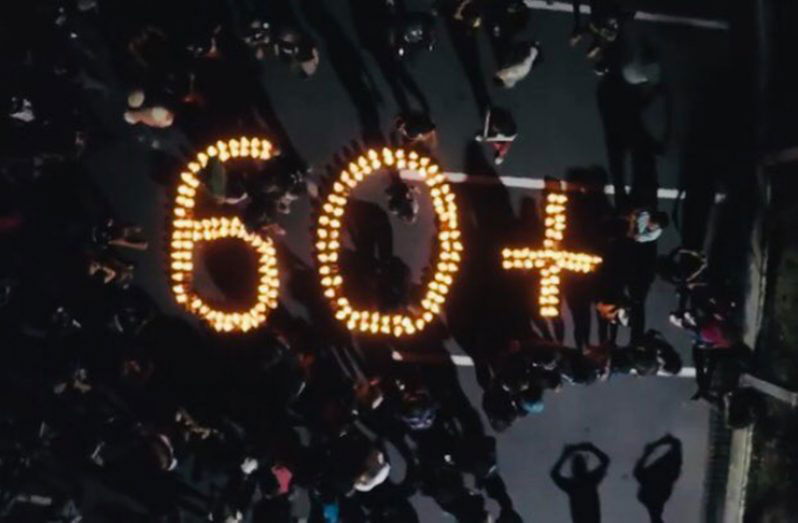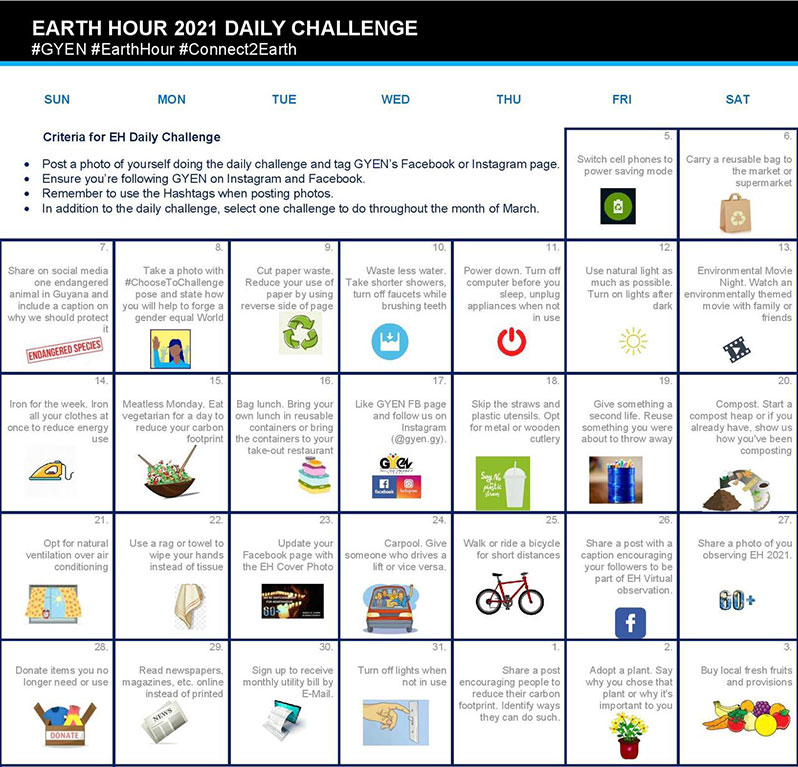DURING my stint at the then Ministry of Natural Resources and the Environment, I was invited by a colleague to an event one Saturday which would take place at the local WWF office. After a fast-food binge, I headed over to the WWF office which was located on Irving Street to see a small gathering – some persons on blankets on the ground, others in chairs swaying to a cover of Redemption Song by Bob Marley on guitar.
Throughout the evening there were varying pieces of performing art that spoke to the need for environmental protection. I left the event feeling refreshed and feeling even more motivated to work harder to do my part to to bring awareness to issues that affect our home planet and working with groups and individuals on solutions.

As I continued my career in environmental awareness and education, I’ve had the pleasure to see the observance of Earth Hour in Guyana grow from an intimate gathering to a massive Lights Out Concert in the National Park, and even branch out to include activities in Linden and Bartica. Earth Hour now includes pre-day events that raise awareness to target groups and incorporating social media.
As with most public events, the Lights Out Concert has been affected by the ongoing COVID-19 pandemic for the second year. While I will miss taking my children to enjoy the skits, dances, and other items prepared by the EPA and other organisations, there are many ways that we can celebrate Earth Hour even beyond the day itself. While Earth Hour started out with the symbolic lights out at 8:30pm on the last Saturday in March, it has been extended to include simple acts that we as individuals, and meaningful, progressive gestures that businesses and governments can implement to turn the tide on climate change, biodiversity loss, and other environmental problems.
By the time you read this article, we would have already celebrated Earth Hour in Guyana, and my family I hope would have come away with a deeper appreciation for our planet as we watched one of the Our Planet films on Netflix. If by chance you missed the interviews leading up to Earth Hour and didn’t switch off your non-essential lights yesterday, here’s a few simple things you can do (which I practise) for 60+ Beyond Earth Hour:
* Eat less meat – the production of meat requires vast amounts of land and water, which more often than not involves deforestation, habitat loss, and contributes to global climate change.
* Opt for reusable items – from straws to shopping bags, making the switch to everyday reusable items can make a big difference as plastic pollution becomes more prevalent.
* Conserve water and electricity (at home and in the office) – not only does this mean less pressure on the systems that produce both utilities, it will mean more money in your wallet.

For more information on Earth Hour, visit https://www.earthhour.org/new-in-2021
An account of Aretha Forde, Environmental Officer – Communications Department
You can share your ideas and questions by sending letters to: “Our Earth, Our Environment”, C/O ECEA Programme, Environmental Protection Agency, Ganges Street, Sophia, GEORGETOWN, or email us at: eit.epaguyana@gmail.com. Follow us on Facebook and Instagram and subscribe to our YouTube channel.



.jpg)











